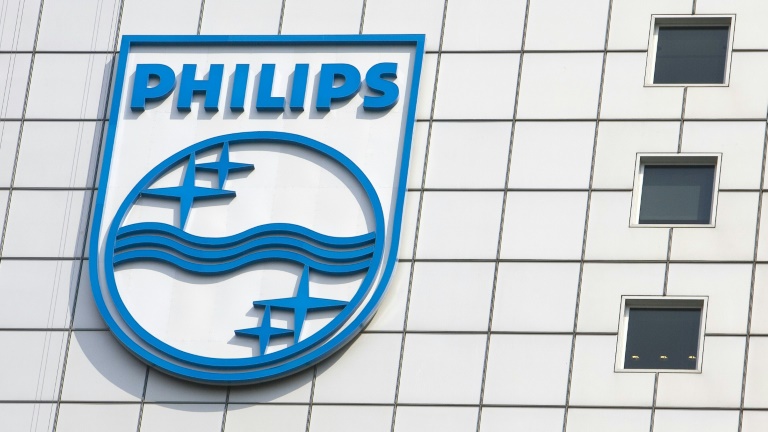Philips stops selling sleep devices in US amid recall woes

Philips is still struggling with the fallout of the recalls of its sleep machines
The Hague – Under-fire Dutch medical device maker Philips said Monday it would halt new sales of sleep machines in the United States after a series of recalls that continued to weigh on results.
The firm trimmed its losses for 2023 compared with the previous year, as it seeks to bounce back from what it had described as a “very difficult” 2022.
Philips posted losses of 463 million euros ($501 million) over the full year, compared with 1.6 billion euros in 2022, with chief executive Roy Jakobs hailing “strong results.”
“While there is more work to be done, the progress we achieved in a volatile world lays a solid foundation for sustained performance,” said Jakobs.
Traders appeared downbeat on the prospects, however, with Philips being the biggest loser at the opening of the Amsterdam stock exchange, down around four percent.
Since 2021, the company has been battling a series of crises over its DreamStation machines for sleep apnoea, a disorder in which breathing stops and starts during sleep.
“Resolving the consequences of the Respironics recall for our patients and customers is a key focus area and I acknowledge and apologise for the distress and concern caused,” said Jakobs.
The firm said it had clinched a “consent decree” deal with US authorities that consists of a “roadmap” of targets to allow Philips to conform with regulatory requirements.
“Until the relevant requirements of the consent decree are met, Philips Respironics will not sell new… sleep therapy devices or other respiratory care devices in the US,” the company said.
It said it had set aside a provision of 363 million euros in the fourth quarter to settle the deal, which still needs to be finalised and requires court approval.
“We are fully committed to complying with the consent decree, which is an important step and provides a clear path forward,” said Jakobs.
– ‘Signs of overheating’ –
The firm’s latest woes came in November when the US Food and Drug Administration warned that its new “DreamStation 2” machine to help patients sleep risked overheating.
The US body said it had received reports “such as fire, smoke, burns, and other signs of overheating” from people using the machine.
Philips said it had filed 270 reports of possible malfunctions with the FDA that covered a three-year period.
The overheating issue was unrelated to a recall of sleep machines in 2021 that sent the company into turmoil.
In that recall, the FDA said foam in the machine could potentially be breathed in or swallowed, posing possible health risks to patients.
The recall and provisions for possible legal settlements pushed the firm deep into the red in 2022 and led to the loss of thousands of jobs.
The company has already completed the vast majority of the recalls and announced in May that independent tests showed the respirators were “unlikely” to harm patients.
Financially, the firm has been fighting back, posting stronger third-quarter sales and profits that prompted it to raise its 2023 full-year outlook.
It recorded a net profit of 90 million euros ($95 million) in the third quarter, compared with a loss of 1.3 billion euros during the same period last year.
The firm was also in the black in the fourth quarter, posting a profit of 38 million euros. It lost 105 million euros in the same period last year.
Total sales for 2023 came in at 18.1 billion euros, a six-percent gain on last year.
Once famous for making lightbulbs and televisions among other products, Amsterdam-based Philips in recent years has sold off its subsidiaries to focus on medical care technology.
The firm has continued to shed jobs. It employed 69,656 people at the end of 2023, compared to 77,233 at the end of 2022.
